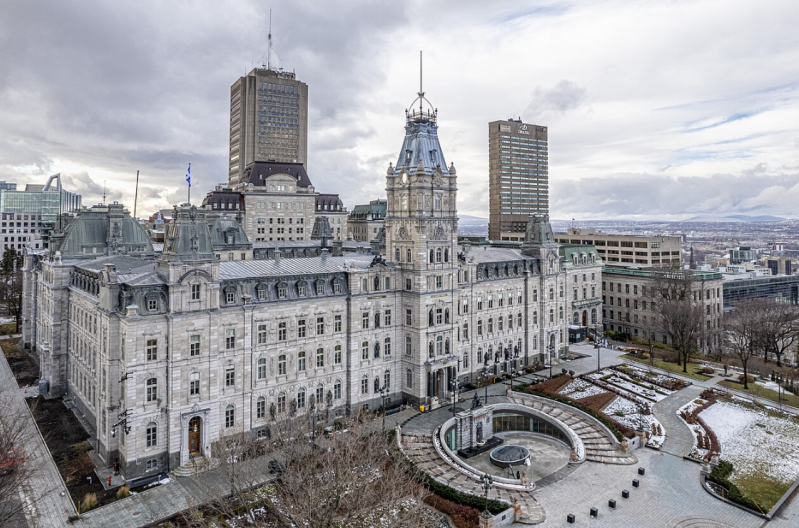
A leading Christian think tank has criticized Quebec’s plan to ban public prayer, warning that the proposal reflects a growing misunderstanding of religion’s role in society and could undermine institutions central to civic life.
Jean-François Roberge, the province’s minister responsible for secularism, has pledged to advance legislation this fall that would prohibit prayers in public spaces. The move, floated by Premier François Legault, was framed as a response to Muslim prayer gatherings at pro-Palestinian demonstrations but would apply broadly to all religions, including Christianity. Quebec remains one of Canada’s most religiously affiliated provinces, with 64.8 percent of its population identifying as Christian.
“The rise of street prayers is a serious and sensitive issue in Quebec,” Roberge said in a written statement. “Last December, our government expressed its unease with this growing phenomenon, particularly in Montreal.”
The Canadian Civil Liberties Association also objected to the measure, warning that such a ban would infringe on fundamental rights. In a statement, the group said it would violate freedom of religion, freedom of expression, freedom of peaceful assembly and freedom of association. “Public spaces belong to everyone, regardless of their religious beliefs,” the association said. “These spaces must be places where diversity of belief, culture and identity is both respected and protected.”
Meanwhile, Cardus, a Christian think tank, expressed concern over a government-commissioned committee report on Quebec’s Act Respecting the Laicity of the State, better known as Bill 21. Passed in 2019, the law entrenched the province’s secular model, including banning public servants from wearing religious symbols while on duty.
“The committee’s mandate is to draw up a portrait of respect for secularism and religious neutrality within state institutions,” said Jean-Christophe Jasmin, Quebec director at Cardus. “It must analyze any phenomenon that could hinder their effectiveness, including the exercise, direct or indirect, of religious influences in the institutions of the Quebec state.”
Cardus welcomed the committee’s interest in applying neutrality consistently across the province but said some of its recommendations — particularly a call to end funding for independent schools and daycare centers — reveal “a profound misunderstanding of Quebec’s religious reality.”
“To eliminate religion as a charitable purpose would cause irreparable harm to institutions that are essential to believers and to Quebec society as a whole,” Jasmin said.
A recent Cardus study found that tax exemptions for religious organizations generate socio-economic benefits more than 10 times greater than the value of the credits granted, benefitting all citizens. Independent religious schools, the think tank added, help foster civic engagement and strengthen social cohesion.
Despite Quebec’s secularist policies, Cardus noted, religion remains deeply woven into public life. More than 20.9 million people attend religious services annually in the province, the group said, “more than double the attendance generated by all performing arts and entertainment combined.”
“Religious communities are an integral part of the Québécois nation, and their social commitment benefits everyone,” Jasmin said. “Implementing recommendations that would weaken this fundamental part of Quebec civil society would seriously undermine social cohesion and community engagement throughout Quebec.”
News Source : https://www.christiandaily.com/news/quebec-prayer-ban-shows-profound-misunderstanding-of-faith-and-society-christian-think-tank-warns
 Your post is being uploaded. Please don't close or refresh the page.
Your post is being uploaded. Please don't close or refresh the page.





